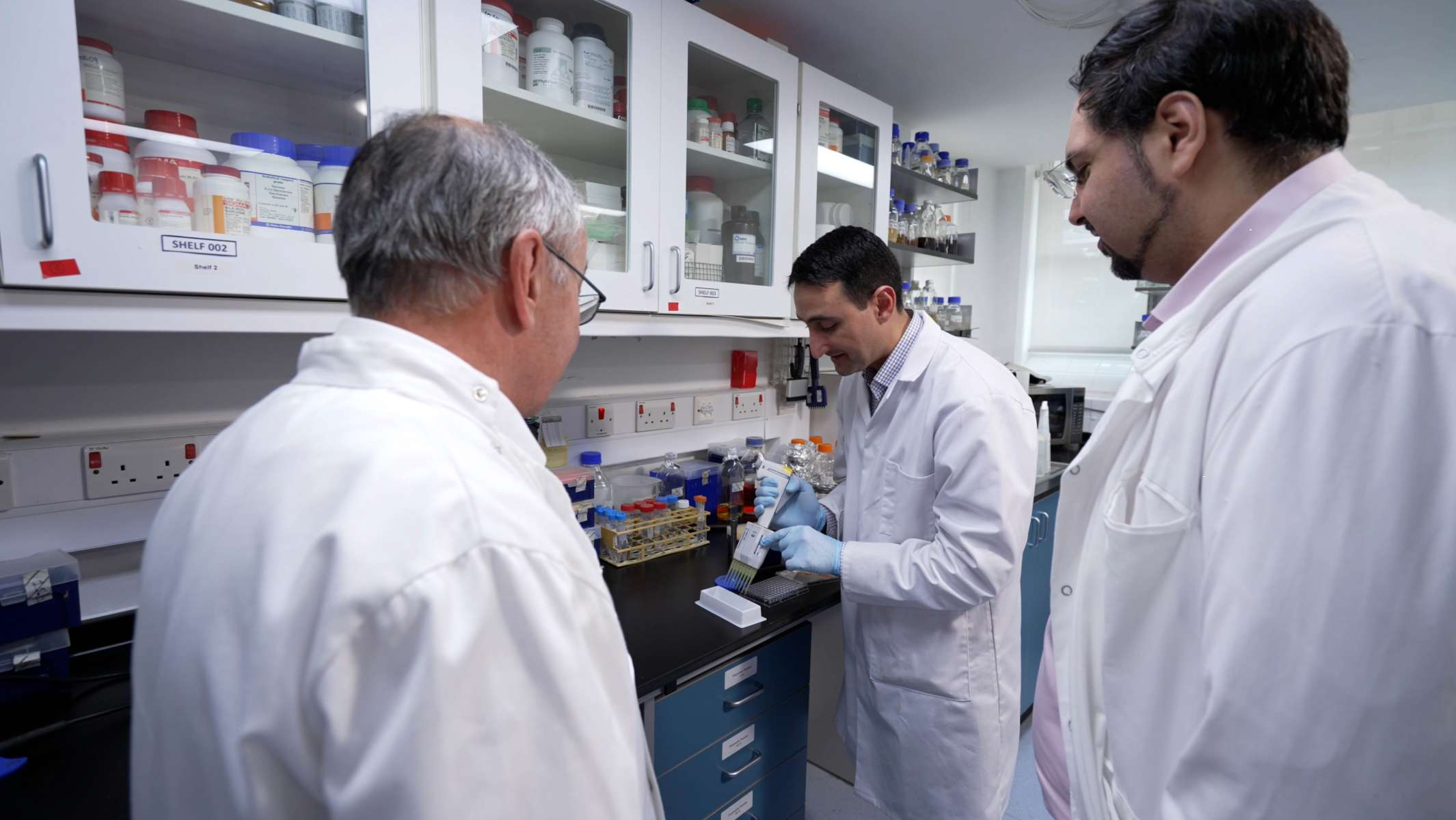Biofilm-associated infections that are difficult to treat pose a significant global challenge and represent a major unmet clinical need.
Approximately three quarters of bacterial infections manifest as biofilms, which possess a complex structure that shields bacteria from antibiotics and the host immune system, making infections difficult to treat.
Biofilms often act as reservoirs for pathogenic bacteria and drive recurrent infections. This is especially problematic in urinary tract infections (UTIs), which affect 400 million individuals annually worldwide, with high recurrence rates and potentially fatal outcomes.
BioTryp Therapeutics is developing innovative biofilm-inhibiting technology designed to enhance traditional antibiotics by preventing biofilm formation, leading to quicker infection clearance and reduced recurrence. The technology has already been shown to successfully inhibit biofilm formation by E. coli strains that are responsible for most UTIs.

“BioTryp Therapeutics’ innovative approach to developing anti-biofilm drugs is a huge step forward in the fight against persistent bacterial infections.”
Dr Laura Donnelly, Associate Director (Life Sciences)
Established in early 2024, BioTryp Therapeutics is based on more than eight years of research conducted by Dr David Summers’ group at the University of Cambridge. Since 2020, Cambridge Enterprise has worked with Dr Summers and Research Fellow Dr Ashraf Zarkan, now BioTryp’s Chief Executive Officer and Dr Jehangir Cama, Commercial Director, to bring in translational support and develop the commercial and intellectual property strategy.
“Their work addresses a significant unmet clinical need, potentially improving patient outcomes, and can have a real impact on global health. This is a great example of how fundamental biological research can lead to therapeutic innovations that transform lives.”

In 2024, BioTryp Therapeutics joined the inaugural cohort of the Founders at the University of Cambridge START 1.0 accelerator programme, and subsequently raised £300k in pre-seed funding, including investment from the Cambridge Enterprise Ventures team, to advance the development of its novel compounds.
Image credits: David Johnson, Unsplash





